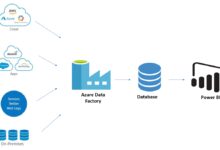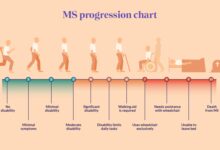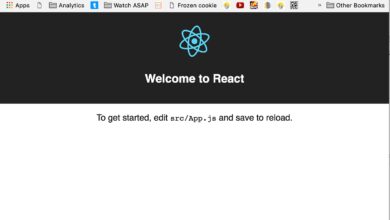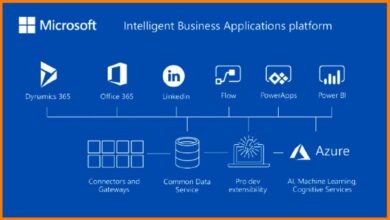Azure Certification: 7 Ultimate Paths to Skyrocket Your Cloud Career
Kickstarting your journey in cloud computing? Azure certification isn’t just a badge—it’s your golden ticket to high-demand tech roles, better pay, and global recognition. Let’s dive into the ultimate roadmap.
What Is Azure Certification and Why It Matters

Microsoft Azure certification is a globally recognized validation of your expertise in Microsoft’s cloud platform. Whether you’re managing virtual machines, designing scalable architectures, or securing cloud environments, these certifications prove you have the skills employers crave. With over 200 Azure services available, mastering them through structured learning paths gives professionals a competitive edge.
Defining Azure Certification
Azure certification is a series of exams and learning paths offered by Microsoft to validate technical skills across various cloud computing domains. These credentials are designed for IT professionals, developers, data engineers, and security specialists who work with Microsoft Azure. Each certification targets a specific role, such as administrator, developer, or architect, ensuring that candidates gain role-based, practical knowledge.
- Certifications are role-based, not product-based, aligning with real-world job functions.
- They are developed in collaboration with industry experts and Microsoft partners.
- Each certification includes a performance-based exam that tests hands-on skills.
Why Azure Certification Is a Game-Changer
In today’s tech-driven world, cloud computing dominates enterprise infrastructure. According to Flexera’s 2023 State of the Cloud Report, 96% of enterprises use cloud services, with Azure being the second most adopted platform after AWS. This widespread adoption means certified Azure professionals are in high demand.
Organizations seek individuals who can deploy, manage, and secure cloud resources efficiently. An Azure certification signals to employers that you’ve mastered these competencies. It also opens doors to higher salaries. CompTIA’s 2023 IT Industry Outlook found that certified professionals earn up to 20% more than their non-certified peers.
“Certification is not just about passing an exam—it’s about proving you can solve real problems in the cloud.” — Microsoft Certified Trainer
The Evolution of Azure Certification Paths
Microsoft has continuously refined its certification program to keep pace with technological advancements. The shift from legacy MCSE and MCSA credentials to role-based Azure certifications marked a pivotal moment in 2018. This transformation was driven by the need for more practical, job-aligned skills assessment.
From Legacy to Role-Based Certifications
Prior to 2018, Microsoft offered broad certifications like MCSA (Microsoft Certified Solutions Associate) and MCSE (Microsoft Certified Solutions Expert). While respected, these were often criticized for being too theoretical and not closely tied to specific job roles.
The introduction of role-based Azure certification changed that. Now, each certification aligns with a specific job function—such as Azure Administrator, Developer, or Solutions Architect—ensuring that learning paths are directly applicable to real-world responsibilities. This shift made the certifications more valuable to both employers and job seekers.
How Microsoft Structures Azure Certifications Today
Today, Microsoft organizes Azure certifications into three main categories: Fundamentals, Associate, and Expert. Each level builds upon the previous one, creating a clear progression path for learners.
- Fundamentals: Entry-level certifications for beginners (e.g., AZ-900).
- Associate: Mid-level credentials requiring hands-on experience (e.g., AZ-104, AZ-204).
- Expert: Advanced certifications for seasoned professionals (e.g., AZ-305).
Additionally, there are specialty certifications for niche areas like security, data, and AI. This tiered structure allows professionals to grow from foundational knowledge to expert-level mastery.
Top 7 Azure Certifications You Should Consider in 2024
With so many options, choosing the right Azure certification can be overwhelming. Here’s a breakdown of the seven most impactful certifications that can boost your career in 2024.
AZ-900: Microsoft Azure Fundamentals
The AZ-900 exam is the perfect starting point for anyone new to cloud computing. It covers basic cloud concepts, core Azure services, security, privacy, compliance, and pricing. While it doesn’t require prior experience, it lays the groundwork for more advanced certifications.
This certification is ideal for non-technical roles like sales, project management, or business analysts who need to understand cloud terminology and capabilities. It’s also a prerequisite for pursuing higher-level Azure certifications.
Learn more about the exam structure at the official Microsoft Learn page.
AZ-104: Microsoft Azure Administrator
The AZ-104 certification is one of the most popular Azure credentials. It validates your ability to manage cloud resources, implement storage solutions, configure virtual networks, and monitor Azure environments.
Targeted at IT professionals with at least six months of hands-on experience, this certification is essential for cloud administrators. Passing the AZ-104 opens doors to roles like Cloud Administrator, Systems Engineer, or DevOps Support Specialist.
- Key topics: Azure identity and governance, virtual networking, storage, and monitoring.
- Recommended prep: Hands-on labs, Microsoft Learn modules, and practice exams.
- Exam duration: 120 minutes with approximately 40–60 questions.
AZ-204: Developing Solutions for Microsoft Azure
If you’re a developer working with Azure, the AZ-204 certification is a must-have. It focuses on building and deploying cloud applications using Azure services like App Services, Functions, and Storage.
This certification tests your ability to design for scalability, implement authentication, and integrate APIs. It’s perfect for software developers, full-stack engineers, and cloud application architects.
According to Stack Overflow’s 2023 Developer Survey, Azure ranks among the top platforms used by professional developers, making AZ-204 highly relevant.
AZ-305: Designing Microsoft Azure Infrastructure Solutions
The AZ-305 is part of the Expert-level track and is designed for solutions architects. It assesses your ability to design secure, scalable, and reliable cloud infrastructures.
This exam requires deep knowledge of networking, identity management, data platforms, and hybrid solutions. Candidates should have prior experience with AZ-104 or equivalent skills before attempting AZ-305.
“The AZ-305 isn’t just about knowing Azure—it’s about designing the right solution for the right problem.” — Azure Solutions Architect
AZ-500: Microsoft Azure Security Technologies
As cyber threats grow, cloud security is more critical than ever. The AZ-500 certification validates expertise in securing Azure environments, including identity protection, threat detection, and data encryption.
This certification is ideal for security engineers, compliance officers, and IT auditors. With organizations increasingly adopting Zero Trust models, AZ-500 holders are in high demand.
- Covers: Azure Active Directory, Key Vault, Security Center, and network security groups.
- Prerequisites: Strong understanding of AZ-104 or equivalent experience.
- Job roles: Cloud Security Engineer, Information Security Analyst.
AZ-700: Designing and Implementing Microsoft Azure Networking Solutions
Networking is the backbone of any cloud deployment. The AZ-700 certification focuses on designing and implementing hybrid and cloud-only network architectures.
This credential is tailored for network engineers and cloud architects who need to configure virtual networks, implement connectivity solutions, and manage DNS and traffic routing.
Given the rise of hybrid work models, organizations are investing heavily in robust, secure networking—making AZ-700 a strategic certification for 2024.
DP-203: Data Engineering on Microsoft Azure
For data professionals, the DP-203 certification is a gateway to high-paying roles in data engineering. It covers designing and implementing data storage, processing, and security using Azure Synapse Analytics, Data Factory, and Databricks.
Data is the new oil, and companies need experts who can manage and analyze it effectively. DP-203 holders are equipped to build end-to-end data pipelines and support AI/ML initiatives.
Explore the official exam guide at Microsoft Learn DP-203.
How to Prepare for Azure Certification Exams
Success in Azure certification exams doesn’t come from memorization—it comes from understanding concepts and applying them in real scenarios. Here’s how to prepare effectively.
Step-by-Step Study Plan
Creating a structured study plan is crucial. Start by reviewing the official exam outline on Microsoft Learn. Break down the topics into weekly goals and allocate time for both theory and hands-on practice.
- Week 1–2: Cloud fundamentals and core services.
- Week 3–4: Identity, governance, and security.
- Week 5–6: Networking and storage.
- Week 7–8: Monitoring, backup, and disaster recovery.
Use Microsoft Learn’s free learning paths, which include interactive modules and knowledge checks.
Hands-On Labs and Practice Environments
Nothing beats real experience. Microsoft offers free Azure labs through its Microsoft Learn platform. You can also sign up for a free Azure account with $200 in credits to experiment with services.
Set up virtual machines, configure networks, deploy web apps, and test security policies. The more you practice, the more confident you’ll feel during the exam.
Recommended Resources and Training Platforms
Besides Microsoft Learn, several third-party platforms offer high-quality Azure training:
- Pluralsight: In-depth video courses with expert instructors.
- Udemy: Affordable, project-based learning (look for top-rated instructors like Scott Duffy).
- A Cloud Guru: Hands-on labs and exam simulators.
- Coursera: Offers Azure courses in partnership with Microsoft.
Join online communities like Reddit’s r/Azure or the Microsoft Tech Community to ask questions and share tips.
Beyond the Exam: How Azure Certification Boosts Your Career
Earning an Azure certification is just the beginning. The real value lies in how it transforms your career trajectory.
Salary Increases and Job Opportunities
Certified professionals consistently earn more. According to Payscale, the average salary for an Azure Administrator is $85,000–$110,000 per year, while Azure Solutions Architects can earn over $130,000.
Job boards like LinkedIn and Indeed show thousands of openings requiring Azure skills. Certifications make your resume stand out, especially when combined with hands-on experience.
Global Recognition and Industry Credibility
Microsoft certifications are recognized worldwide. Whether you’re applying for jobs in the U.S., Europe, or Asia, Azure certification carries weight. Employers trust Microsoft’s rigorous exam standards.
Additionally, being certified gives you access to the Microsoft Certified Network, where you can showcase your credentials and connect with other professionals.
Pathways to Advanced Roles and Specializations
Once you’ve earned an Associate-level certification, you can pursue Expert-level credentials or specialize in areas like AI (AI-102), DevOps (AZ-400), or data science (DP-100).
Many professionals use Azure certification as a stepping stone to leadership roles like Cloud Team Lead, IT Manager, or Chief Technology Officer.
Common Challenges and How to Overcome Them
While Azure certification offers many benefits, candidates often face obstacles. Here’s how to tackle them head-on.
Information Overload and Keeping Up with Updates
Azure is a vast platform with frequent updates. It’s easy to feel overwhelmed by the sheer volume of services and features.
The key is to focus on the exam objectives. Stick to the official Microsoft Learn paths and avoid diving too deep into unrelated services. Subscribe to the Azure Updates blog to stay informed about changes.
Cost of Exams and Training Materials
Azure certification exams cost around $165 each. While not exorbitant, costs can add up if you’re pursuing multiple certifications.
To save money:
- Use free resources like Microsoft Learn and GitHub labs.
- Look for exam voucher discounts through programs like Microsoft Imagine or academic partnerships.
- Consider bundled training packages from platforms like A Cloud Guru.
Time Management for Working Professionals
Balancing study time with a full-time job is tough. Create a realistic schedule—dedicate 5–10 hours per week to studying.
Use techniques like the Pomodoro method (25-minute focused sessions) to maximize productivity. Weekends are ideal for longer lab sessions.
Future Trends in Azure Certification and Cloud Careers
The cloud landscape is evolving rapidly. Staying ahead means understanding where Azure certification is headed.
Integration of AI and Machine Learning in Certification Paths
Microsoft is embedding AI into its certification programs. New exams now include AI-powered services like Azure AI Fundamentals (AI-900) and Azure Cognitive Services.
Future Azure certifications will likely require knowledge of AI model deployment, MLOps, and responsible AI practices. Professionals who combine cloud and AI skills will have a significant advantage.
The Rise of Hybrid and Multi-Cloud Expertise
Organizations are no longer choosing between public or private cloud—they’re using both. Azure Stack, Azure Arc, and hybrid identity solutions are becoming standard.
Upcoming certifications may place greater emphasis on managing resources across on-premises, Azure, and even AWS/GCP environments. Understanding cross-platform integration will be crucial.
Lifelong Learning and Certification Renewals
Microsoft requires certification renewal every year. This ensures professionals stay current with platform changes.
Renewal involves completing free online assessments on Microsoft Learn. This model promotes continuous learning and keeps the certification ecosystem dynamic and relevant.
“Certification isn’t a one-time achievement—it’s a commitment to lifelong learning.” — Microsoft Learning Director
What is the easiest Azure certification to start with?
The AZ-900: Microsoft Azure Fundamentals is the easiest and most recommended starting point. It requires no prior experience and covers essential cloud concepts, making it ideal for beginners.
How long does it take to prepare for an Azure certification exam?
Preparation time varies by individual and certification level. For AZ-900, 20–30 hours of study may suffice. For AZ-104 or AZ-204, 80–120 hours of combined study and hands-on practice is typical.
Are Azure certifications worth it in 2024?
Yes, absolutely. Azure certifications are highly valued by employers, lead to higher salaries, and open doors to in-demand cloud roles. With Azure being the second-largest cloud provider, these credentials offer strong ROI.
Can I get Azure certified for free?
While exams cost money, you can access free learning materials through Microsoft Learn, GitHub, and community platforms. Microsoft occasionally offers free exam vouchers during events like Cloud Skills Challenge.
Do Azure certifications expire?
Yes, most Azure certifications are valid for one year. You must renew them by completing free online assessments on Microsoft Learn to stay certified.
Microsoft Azure certification is more than a resume booster—it’s a career accelerator. From foundational knowledge to expert-level mastery, these credentials equip you with the skills needed to thrive in the cloud era. Whether you’re starting fresh or advancing your expertise, there’s a clear path waiting for you. The cloud isn’t the future—it’s now. And with Azure certification, you’re ready to lead the way.
Further Reading:









